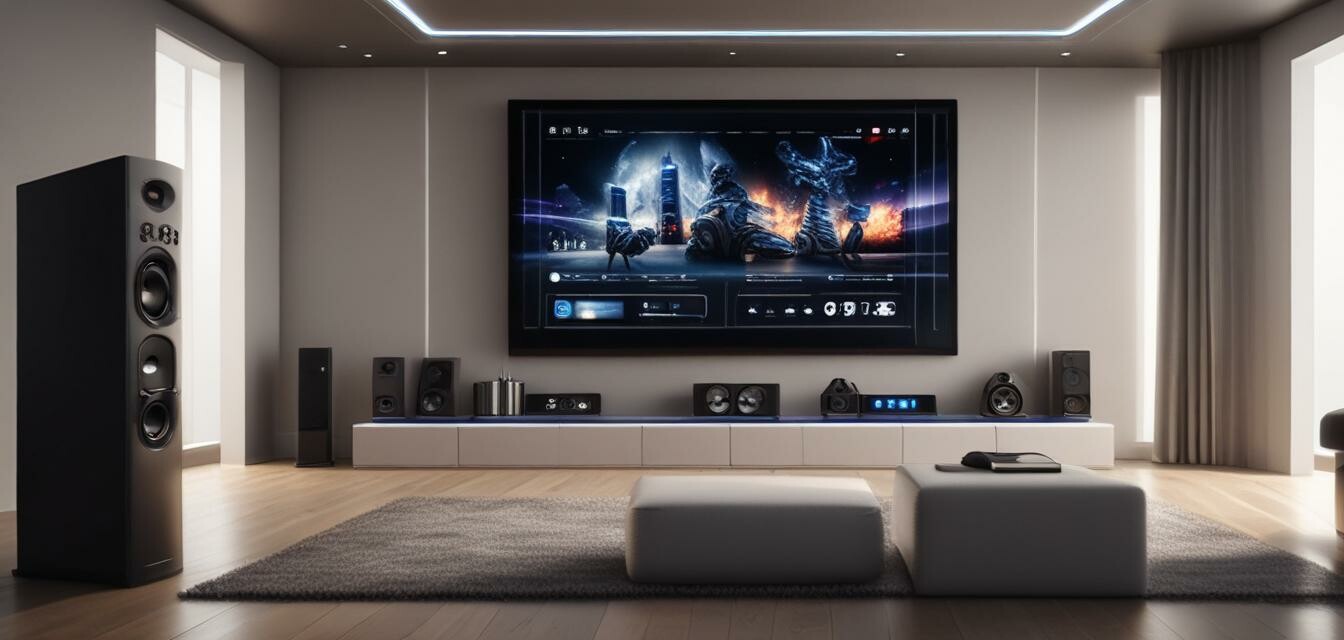
Upcoming Technologies Revolutionizing Home Entertainment
Key Takeaways
- 8K resolution is set to become the new standard in home entertainment.
- AI-driven enhancements will personalize viewing experiences significantly.
- Smart home integration will streamline control of various devices.
- Immersive audio technologies promise a cinema-like experience at home.
- Virtual reality (VR) and augmented reality (AR) will redefine interactive entertainment.
As we look ahead to 2025 and beyond, the landscape of home entertainment is on the brink of extraordinary change. Emerging technologies promise to elevate the viewing experience to new heights, making it more immersive, convenient, and personalized than ever before. In this article, we will explore the upcoming technologies that will shape the future of home cinema, highlighting key innovations that every enthusiast should keep an eye on.
The Rise of 8K Technology
8K resolution is heralded as the future of display technology. With over 33 million pixels, 8K offers four times the resolution of 4K, taking the clarity and detail of images to unprecedented levels. As manufacturers ramp up productions, 8K televisions are becoming more accessible and affordable.
| Resolution | Number of Pixels | Comparison to 4K |
|---|---|---|
| HD (1080p) | 2 million | - |
| 4K | 8 million | 4 times HD |
| 8K | 33 million | 4 times 4K |
As more streaming services begin to offer 8K content, consumers will need to upgrade their systems accordingly. For a deeper dive into compatible setups, check out our guide on ultra HD televisions.
Artificial Intelligence in Home Entertainment
Artificial intelligence (AI) is not just a buzzword; it's becoming a pivotal part of home entertainment. AI-driven technologies will analyze viewing habits and preferences, curating personalized content recommendations and even adjusting settings based on who is watching.
- Smart recommendation systems suggest movies based on user behavior.
- Automated sound adjustments enhance the audio experience.
- AI-powered assistants simplify control through voice commands.
Smart Home Integration
The blending of home entertainment systems with smart home technology is expected to grow rapidly. Integrating devices, such as lighting, sound, and temperature control with existing media systems, transforms how we consume content.
This seamless connectivity ensures that your home cinema can be managed with a single app or voice command. For more about integrating your devices, read our article on smart home integration.
Immersive Audio Technologies
Sound quality can make or break a home cinema experience. Innovations in immersive audio, like Dolby Atmos or DTS:X, will be more prevalent, providing multidimensional sound that makes movie-watching feel like a real-life experience.
| Audio Technology | Key Features |
|---|---|
| Dolby Atmos | 3D audio formats, sound emanating from all directions. |
| DTS:X | Object-based audio, allowing sound to move freely. |
These advancements correlate directly with setups outfitted with surround sound systems. Our exploration of surround sound systems shares insights into how to create an optimal sound environment.
Virtual Reality and Augmented Reality in Home Entertainment
As VR and AR technologies advance, they're set to transform interactive entertainment. Imagine a home cinema where you can step into the movie or game, experiencing a narrative from within. The potential for such innovations is vast and intriguing.
- Immersive movie experiences where users can interact with video content.
- AR enhancements for real-time information about the film or show playing.
- Innovative gaming landscapes that blend virtual worlds with real-life environments.
Conclusion
As we look forward, these upcoming technologies are poised to revolutionize the home entertainment experience profoundly. Staying updated with these trends enables consumers to make informed decisions about their home cinema setups. Whether it's upgrading to 8K, embracing artificial intelligence, or integrating immersive audio systems, the future looks bright for home entertainment enthusiasts.
Pros
- Enhanced viewing experiences with higher resolutions.
- Personalized content recommendations via AI.
- Seamless connectivity with smart homes.
- Immersive audio systems for realistic sounds.
- Interactive entertainment through VR and AR.
Cons
- Potentially high costs for new technologies.
- Compatibility issues with older systems.
- Learning curve associated with advanced features.
- Content availability for 8K and VR is still limited.
